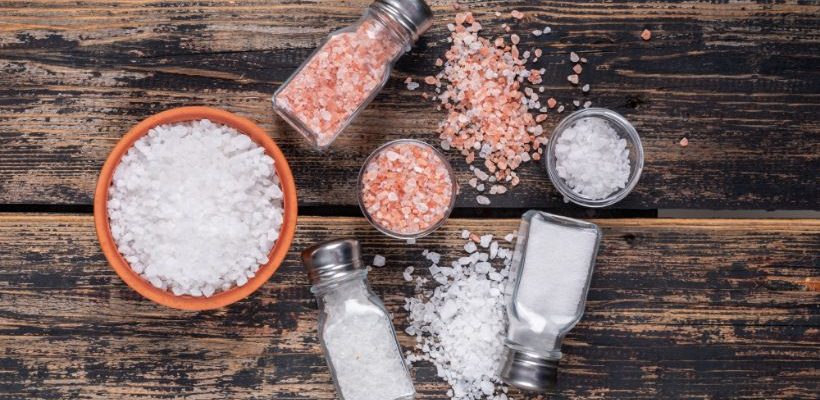
How much is your daily salt intake? A recent study by the Centers for Disease Control (CDC) reveals that common foods contribute to the majority of our salt content even before adding extra from the saltshaker. Surprisingly, over 44% of our daily food intake consists of these foods. With the increasing salt content in our meals, the risk of heart disease and hypertension also rises. But did you know there are many fascinating facts about salt intake?
Cool Historical Facts About Salt:
- Salt as Currency: In various ancient civilizations, salt held great value and was even used as a form of currency. For instance, in ancient Rome, soldiers were sometimes paid with salt, leading to the term “salary” derived from the Latin word “salarium,” meaning salt money.
- Salt and Taxation: Salt taxes, known as salt duties, have a long history. Governments recognized the economic potential of salt and imposed taxes on its production and sale. These taxes, called salt taxes or salt gabelles, were prevalent in different regions and periods, including ancient China, ancient Rome, and medieval Europe.
- Salt in Warfare: Salt played a significant role in military strategy throughout history. In ancient times, armies would often destroy saltworks or block access to salt mines to weaken their enemies’ food preservation capabilities and induce famine. Control over salt supplies could give a military advantage and exert control over territories.
- Salt Trade Routes: Salt has been a valuable commodity in international trade. Historical trade routes, such as the Salt Roads in ancient Rome or the Trans-Saharan trade routes in Africa, facilitated the exchange of salt between regions. These trade routes were vital for economic development and cultural exchange.
- Salt Monopolies: Salt monopolies have been established in different periods and regions. Governments or ruling entities recognized the economic importance of salt and imposed strict controls over its production and distribution. These monopolies aimed to generate revenue and maintain control over the salt trade, often leading to social unrest and smuggling activities.
Exploring Fun Facts About Salt:
- Role in Food Preservation: Salt has long been used as a natural preservative, preventing the growth of bacteria, and enhancing the shelf life of various foods.
- Blood Pressure Regulation: Salt plays a crucial role in regulating blood pressure. High sodium levels can lead to hypertension, a major risk factor for heart attacks and strokes. Monitoring salt intake and opting for lower sodium alternatives are essential for maintaining heart health.
- Hydration Aid: Salt helps in maintaining proper hydration levels by facilitating the absorption and retention of water in our bodies.
- Historical Significance: Salt has a rich history as a valuable commodity, often considered as a form of currency in ancient times.
- Salty Food Revelations: Some foods are surprisingly high in sodium content, including bread and rolls, lunch meats, pizza, processed chicken, soups, cheeseburgers, cheese, pasta, meat dishes, and snack foods. However, it is important to note that sodium levels can vary significantly between different products, making it crucial to check nutritional information.
Science and Technology Facts
- Salt in seawater: Seawater is indeed salty, with an average salinity of around 35 parts per thousand (ppt). This means there are approximately 35 grams of salt (mostly sodium chloride) in a liter of seawater.
- Salt in aviation fuel: Salt is used as a desiccant to remove residual water from aviation fuel after purification. This is essential to prevent corrosion and maintain the fuel’s performance.
- Salt on Mars: Recent scientific missions to Mars have discovered evidence of salt deposits on the planet’s surface. These deposits suggest that Mars once had liquid water, which is a crucial element for the possibility of life.
While salt is an essential nutrient, excessive intake can lead to health issues. The recommended daily salt intake varies depending on age, ranging from 1,500 mg to 1,200 mg. Surprisingly, children above the age of 2 consume an average of 3,436 mg, exceeding the recommended limits. Reducing salt intake has the potential to prevent thousands of deaths and significantly reduce healthcare costs.
Exploring these salt facts reveals the significance of natural salts like Himalayan Sea salt or pink salt, which contain trace elements beneficial to our health. Experimenting with alternative flavors and reducing reliance on the saltshaker can help maintain a balanced daily salt intake. However, it is essential to remember that excessive and inadequate salt consumption can have adverse effects, such as heart issues and muscle cramps.
In summary, understanding the facts about salt intake is crucial for optimal nutrition. By striking a balance and making informed choices, we can ensure our well-being while savoring the true essence of salt’s fascinating qualities.
Also Read
Say No To These 7 Most Addictive Foods For A Healthier You
10 Dangerous Effects Of Stress On Your Health And Happiness
Uncovering The Truths Behind Common Health Myths
Recognizing The Silent Gerd Symptoms Beyond Heartburn
Discovering 5 Incredible Health Benefits Of Fats




